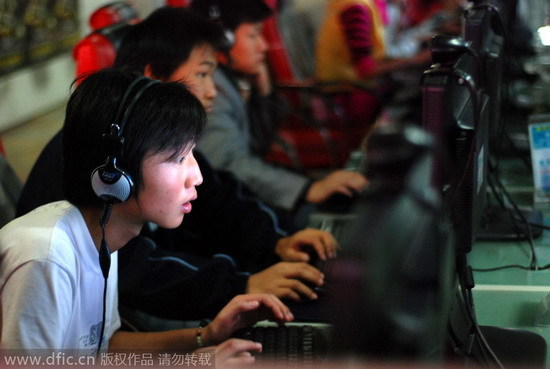Good netizens don't equal to "50 cents"
By Fang Zhou (Chinadaily.com.cn) Updated: 2015-01-08 10:23
|
 |
|
Chinese young people surf the Internet at an Internet cafe in Huaian city, east China's Jiangsu province in January 2008. [Photo/IC] |
A recent article possibly from the Anhui provincial publicity department on what a good netizen should and should not do has sparked an intense online debate over the role of Internet users in the country.
To be considered a good netizen, one should love the country and see the achievements it has made instead of looking at its problems with tinted glasses, says the article thored by An Xuanping. It says to be good netizens, network users should consciously work as the transmitters of mainstream values and be bold enough to act as wumaodang, or 50 cents, a negative term to refer the netizens who are paid 50 cents to sing high praise of any government policy.
Such standard for good netizens not only violates the true meaning of “passing on positive energy”, but also try to give the good netizens a bad name.
Given China’s huge number of Internet users who are increasingly influencing public opinion and decision-making on a range of economic, social and political issues, policymakers can no longer afford to ignore their views and the way they react to events and incidents. Positive-thinking netizens along with their constructive opinions can undoubtedly lubricate a country’s decision-making process and facilitate its march toward progress.
According to the China Internet Network Information Center, the number of netizens in China by the end of June 2014 had reached 632 million, up by 14.42 million from the end of 2013. Among them, the number of Internet users through cell phones was 527 million, an increase of 26.99 million from the end of 2013. With the popularity of smart phones, the number of netizens is expected to rise further. Such a huge population exerts significant influence; it helps sway public opinion and even affects government policies, from passage of legislation related to people’s livelihood to the cancellation of some projects that are detrimental to the environment.

I’ve lived in China for quite a considerable time including my graduate school years, travelled and worked in a few cities and still choose my destination taking into consideration the density of smog or PM2.5 particulate matter in the region.











